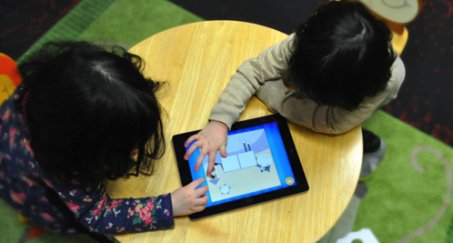An international team of researchers have created the first evidence-based guide that helps parents work out which kids' education apps actually help their children learn.
Right now there are more than 80,000 entries in the App store that claim to be educational for toddlers and pre-school aged kids. But after analysing more than 40 years of scientific research on how children learn, the team found that there are four key factors that determine whether an app is actually educational.
Publishing in the journal Psychological Science in the Public Interest, the researchers reveal that real educational apps need to encourage learning that is:
- active
- engaged
- meaningful
- socially interactive
"With the introduction of the iPad only five years ago, the market has been flooded with thousands of apps for young children labelled 'educational'," one of the researchers, Jordy Kaufman from the Babylab at Swinburne University of Technology in Australia, said in a press release. "Until now, it has been difficult to determine whether or not these apps have any educational value."
So how do you work out whether your child's favourite apps meet those four requirements? The researchers explain that for an app to promote active learning, it needs to require mental effort - and simply tapping the screen or swiping left and right doesn't count.
"A good example of a storybook app that encourages mental activity is one that might ask children to choose among story characters or objects that enhance the storyline," said Kaufman.
For an app to be engaging, it needs to make sure that children stay on tasks and don't get distracted by on-screen animations, sound effects or rewards, such as virtual stickers.
Meaningful learning apps are those that the information being taught to the child's life or existing knowledge, to help them better remember and understand the lesson.
"A number of apps on the marketplace require shallow memorisation, such as an app that asks a child to touch a triangle and then applauds the child for doing so," said Kaufman. "Compare this to an app that explains and demonstrates that a triangle has three sides, then asks the child to 'find the triangles' in an everyday, meaningful scene."
Finally, an app that incorporates social interaction by involving more than two users engaging in face-to-face interactions has a better chance of helping a toddler learn than those that simply involve single player mode.
But while the evidence suggests that these four factors can help children learn, there's still not sufficient data to show just how useful apps really are when it comes to education - and whether they can replace 'real world' learning.
"With a 'science of learning' approach, apps will certainly provide learning opportunities unavailable in today's apps," said Kaufman. "But whether apps can provide entirely new opportunities compared to what can be provided by an excellent teacher is still a lofty goal."
Want to use technology to make the world a better place? Find out more about studying at Swinburne University of Technology.
